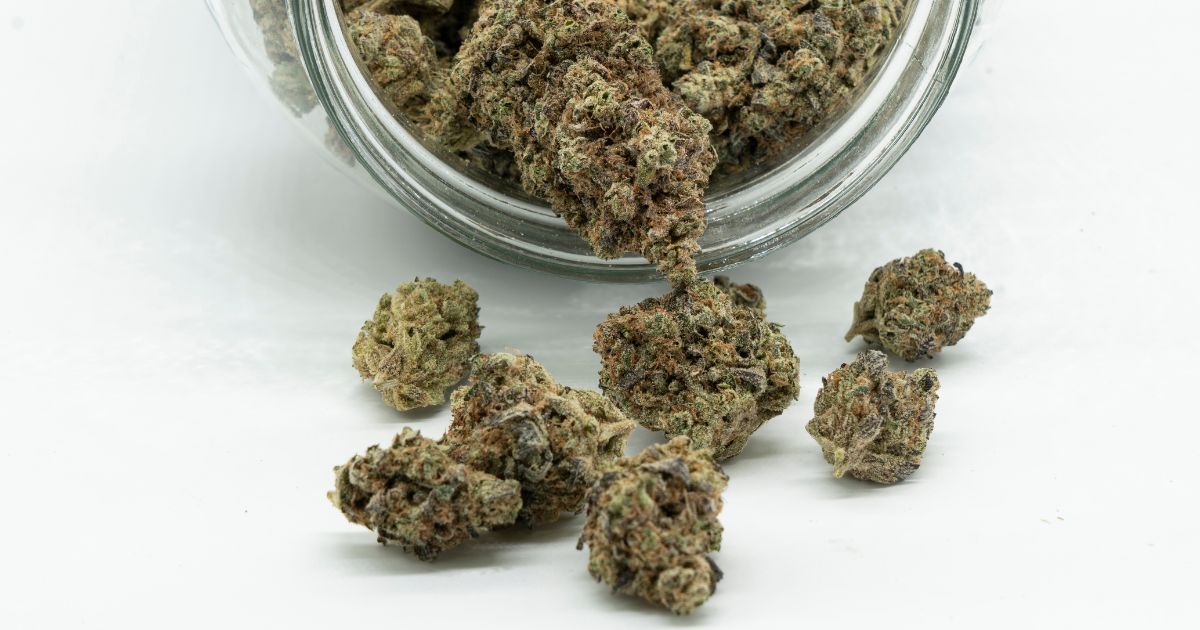Table of Contents
-
- Understanding Inflammatory Bowel Disease (IBD)
- The Endocannabinoid System and Its Role in IBD
- Cannabinoids: The Active Compounds in Cannabis
- Current Research on Cannabis for IBD Treatment
- Dosage and Administration of Cannabis for IBD
- Precautions and Considerations
- Research and Clinical Studies on Cannabis for IBD
- Lifestyle Factors for Managing IBD Symptoms
- Conclusion
- Frequently Asked Questions
In recent years, there has been growing interest in the potential of cannabis as a natural approach to managing symptoms of Inflammatory Bowel Disease (IBD). IBD is a chronic condition that encompasses both Crohn’s disease and ulcerative colitis, characterized by inflammation of the digestive tract.
Living with Inflammatory Bowel Disease can be challenging, as individuals experience symptoms such as abdominal pain, diarrhea, fatigue, and reduced quality of life. While conventional treatments are available, they may not be entirely effective or may come with unwanted side effects.
Cannabis, with its potential to alleviate pain, reduce inflammation, and promote overall well-being, has gained attention as a natural alternative for managing IBD symptoms. In this article, we will delve into the various aspects of using cannabis as a complementary approach to IBD treatment.
Understanding Inflammatory Bowel Disease (IBD)
Inflammatory Bowel Disease (IBD) is a chronic condition that involves inflammation of the gastrointestinal tract. It encompasses two primary forms: Crohn’s disease and ulcerative colitis. Here is a detailed explanation of IBD:
Crohn’s Disease
Crohn’s disease can affect any part of the digestive tract, from the mouth to the anus. The inflammation occurs in patches, which can lead to a range of symptoms, including abdominal pain, diarrhea, fatigue, weight loss, and malnutrition. In severe cases, it can result in complications such as intestinal blockages, fistulas, or abscesses.
Ulcerative Colitis
Ulcerative colitis primarily affects the colon and rectum. The inflammation occurs in continuous patches, starting from the rectum and extending to the colon. Symptoms of ulcerative colitis include abdominal pain, frequent diarrhea (sometimes with blood or mucus), rectal bleeding, urgency to have a bowel movement and a feeling of incomplete bowel emptying.
Both Crohn’s disease and ulcerative colitis are chronic conditions, meaning they last for a prolonged period and require ongoing management.
Causes and Risk Factors
The exact causes of IBD are not yet fully understood. However, several factors are believed to contribute to its development, including:
- Genetics: People with a family history of IBD are at a higher risk of developing the condition. Certain gene mutations are associated with an increased susceptibility to IBD.
- Immune System Dysfunction: IBD is considered an autoimmune disease, where the immune system mistakenly attacks the body’s own healthy tissues in the digestive tract, leading to inflammation.
- Environmental Factors: Environmental triggers, such as certain infections or exposure to certain toxins, may play a role in triggering or exacerbating IBD symptoms in genetically susceptible individuals.
- Dysregulated Gut Microbiome: Imbalances in the gut microbiome, the community of microorganisms residing in the digestive tract, have been linked to the development and progression of IBD.
The Endocannabinoid System and Its Role in IBD
The endocannabinoid system (ECS) plays a crucial role in maintaining homeostasis in the body. It consists of cannabinoid receptors, endocannabinoids (naturally occurring compounds in the body), and enzymes responsible for their synthesis and breakdown. Studies suggest that dysregulation of the ECS may be associated with the development and progression of IBD. By interacting with cannabinoid receptors, cannabis compounds can potentially modulate inflammation and promote balance within the digestive system.
Cannabinoids: The Active Compounds in Cannabis
Cannabis contains over 100 different compounds known as cannabinoids. The two most well-known and extensively studied cannabinoids are delta-9-tetrahydrocannabinol (
THC) and cannabidiol (CBD). THC is primarily responsible for the psychoactive effects associated with cannabis, while CBD is non-intoxicating and has shown anti-inflammatory and analgesic properties. Other cannabinoids, such as cannabigerol (CBG) and cannabinol (CBN), also exhibit therapeutic potential.
Potential Benefits of Cannabis for IBD
Research indicates that cannabis may offer several potential benefits for individuals with IBD. These benefits include:
- Pain Relief: Cannabis has been reported to help alleviate abdominal pain and cramping associated with IBD.
- Anti-Inflammatory Effects: The cannabinoids in cannabis may help reduce inflammation in the gastrointestinal tract.
- Appetite Stimulation: IBD can lead to appetite loss and weight loss. Cannabis may help stimulate appetite and promote healthy eating habits.
- Nausea and Vomiting Relief: Cannabis has shown promise in reducing nausea and vomiting, common symptoms experienced by individuals with IBD.
- Improved Sleep: IBD can disrupt sleep patterns. Cannabis may help improve sleep quality and promote better rest.
Different Types of Cannabis Products for IBD
When considering cannabis for IBD management, it’s essential to understand the different types of cannabis products available. These include:
- Medical Marijuana: Whole-plant cannabis, prescribed by a healthcare professional, contains varying ratios of THC and CBD.
- CBD Products: Cannabidiol (CBD) is derived from hemp plants, is legally available in many regions, and typically contains minimal levels of THC.
- THC-Dominant Products: These products contain higher levels of THC and may be suitable for individuals seeking symptom relief and potential psychoactive effects.
- Balanced THC and CBD Products: Some individuals find balanced ratios of THC and CBD helpful for managing IBD symptoms.
Dosage and Administration of Cannabis for IBD
Determining the appropriate dosage and administration method for cannabis requires careful consideration. Factors such as individual tolerance, desired effects, and previous cannabis experience should be taken into account. It is advisable to start with low doses and gradually increase as needed. Common methods of cannabis administration include inhalation (smoking or vaporizing), oral ingestion (edibles or oils), and topical application (creams or balms).
Precautions and Considerations
While cannabis shows promise as a natural approach to managing IBD symptoms, there are important precautions and considerations to keep in mind:
- Legal Status: Cannabis laws vary by region, so it is essential to be aware of the legalities and regulations in your area.
- Potential Side Effects: Cannabis may cause temporary side effects such as dry mouth, dizziness, and changes in appetite.
- Interaction with Medications: Cannabis can interact with certain medications, so it is crucial to consult with a healthcare professional before use.
- Individual Sensitivities: Each person may respond differently to cannabis, so it’s important to monitor the effects closely and adjust accordingly.
Research and Clinical Studies on Cannabis for IBD
Scientific research on the use of cannabis for IBD is still evolving, with a growing body of evidence suggesting its potential benefits. Several studies have reported positive outcomes in terms of symptom relief and improved quality of life. However, more research is needed to determine optimal dosing, long-term effects, and the mechanisms by which cannabis interacts with the digestive system.
A study published in Inflammatory Bowel Diseases reported that cannabis use was associated with a reduction in the need for other medications among individuals with IBD.
Lifestyle Factors for Managing IBD Symptoms
In addition to considering cannabis as part of an IBD management plan, certain lifestyle factors can also contribute to symptom relief and overall well-being. These include:
- Healthy Diet: Consuming a well-balanced diet rich in nutrients can support digestive health and minimize IBD symptoms.
- Stress Management: Stress can exacerbate IBD symptoms. Practicing stress-reducing techniques such as meditation, yoga, or therapy may help manage symptoms.
- Regular Exercise: Engaging in regular physical activity can improve digestion, reduce inflammation, and boost overall well-being.
- Supportive Healthcare Team: Building a strong relationship with healthcare professionals specializing in IBD can provide valuable guidance and support throughout the management process.
Conclusion
Cannabis has emerged as a potential natural approach to managing symptoms of Inflammatory Bowel Disease (IBD). Its ability to alleviate pain, reduce inflammation, and promote overall well-being has drawn the attention of individuals seeking alternative treatment options.
While research is ongoing, early findings suggest that cannabis may offer significant benefits for IBD patients. However, it is crucial to approach cannabis use with caution, considering legalities, potential side effects, and individual sensitivities. Consulting with healthcare professionals and integrating cannabis into a comprehensive management plan can provide a holistic approach to living with IBD.
FAQs
What are the two main triggers for IBD?
The exact causes of inflammatory bowel disease (IBD) are unknown, but two main triggers are believed to play a role: genetics and an overactive immune response. People with a family history of IBD are at a higher risk, and the immune system mistakenly attacks the intestinal lining, leading to inflammation.
Why is IBD more common now?
The increasing prevalence of IBD in recent years is attributed to a combination of factors. Environmental changes, such as diet and lifestyle, may contribute to the rise. Additionally, improved awareness and diagnostic techniques have led to better identification and reporting of cases.
Are there any potential side effects of using cannabis for IBD?
Temporary side effects of cannabis may include dry mouth, dizziness, and changes in appetite. It is important to start with low doses and monitor the effects closely.
How can I determine the right dosage of cannabis for my IBD symptoms?
Finding the right dosage requires careful consideration of factors such as individual tolerance, desired effects, and previous cannabis experience. It is advisable to start with low doses and gradually increase as needed.
Can cannabis interact with my current medications?
Cannabis can interact with certain medications. It is essential to consult with a healthcare professional before incorporating cannabis into your treatment plan to avoid potential interactions.
What is the mortality rate for IBD?
While IBD can have serious complications, the overall mortality rate for IBD is relatively low. With appropriate medical care, including medication management and monitoring, the majority of individuals with IBD can lead long and fulfilling lives. However, it is important to prioritize regular check-ups and follow the recommended treatment plan to minimize risks.



